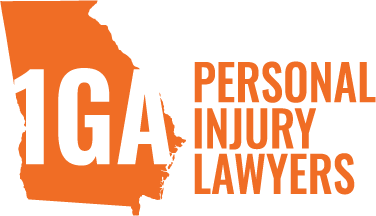- Car Accidents
Car accidents can cause serious injuries that change lives in an instant. From soft tissue damage to spinal cord injuries and traumatic brain injuries, the physical and emotional impact can be long-lasting. Many accident victims also face high medical expenses, lost wages, and psychological distress. Understanding the most common car accident injuries and how to respond helps protect your health and legal rights.
In this blog, we explain the most common car accident injuries, how they affect your recovery, and why working with an experienced Georgia car accident attorney can help you secure the medical care and compensation you need.
The Most Common Car Accident Injuries
Car accidents often cause a wide range of physical and psychological injuries. Some of these injuries are immediate, while others may take days to appear. Below are the most common car accident injuries seen after a vehicle crash.
Soft Tissue Injuries
Soft tissue injuries are among the most frequent injuries sustained in car accidents. They involve damage to muscles, ligaments, and tendons. Whiplash injury is the most well-known example, often caused by rear-end collisions. Other examples include sprains, strains, and deep tissue bruising. These injuries can lead to chronic pain if not treated quickly with physical therapy or pain management.
Head Injuries and Traumatic Brain Injury
Head injuries range from mild concussions to traumatic brain injuries. These often result from a direct impact with a steering wheel, window, or object inside the vehicle. Even minor head trauma can cause dizziness, confusion, and memory loss. In more severe injuries, accident victims may lose consciousness or experience long-term neurological issues.
Neck and Back Injuries
Neck injuries and back injuries are common in both low-speed and high-speed auto accidents. These include herniated discs, spinal misalignment, and neck pain. Spinal cord injuries can occur in more severe cases, sometimes resulting in partial or full paralysis. Immediate medical care is essential to reduce the risk of permanent damage.
Internal Injuries
Internal injuries can be life-threatening if not treated immediately. These may include internal bleeding, damage to major blood vessels, and organ damage. Crush injuries and other internal injuries often result from pressure during impact or improper seat belt placement. Because these injuries are not always visible, prompt medical evaluation is critical.
Broken Bones and Limb Injuries
Broken bones often occur when limbs hit the car’s interior or get trapped during a vehicle crash. Common fractures include arm and leg injuries, rib fractures, and limb fractures. Some of these require surgery and extended recovery. In serious accidents, broken bones may lead to long-term mobility issues or joint damage.
Shoulder and Knee Injuries
Shoulder injuries often occur from the force of the seat belt or from hitting the door. These may result in dislocation, rotator cuff tears, or long-term shoulder pain. Knee injuries can include torn ligaments or shattered kneecaps, usually from hitting the dashboard. Both types of injuries may require surgery, rest, and physical therapy.
Spinal Cord Injuries
Spinal cord injuries are among the most serious injuries caused by automobile accidents. These injuries can lead to loss of movement, sensation, or bladder control. Recovery may involve surgery, rehabilitation, and assistive devices. According to Georgia law (O.C.G.A. § 51-1-6), victims may seek damages if another driver’s negligence caused the injury.
Psychological and Emotional Injuries
Many accident victims suffer from psychological injuries such as post-traumatic stress disorder, anxiety, and depression. These emotional injuries can last long after physical injuries have healed. Symptoms include nightmares, mood swings, and avoidance behavior. Proper mental health treatment is as important as physical recovery.
Hidden Injuries That Appear Days Later
Some car accident injuries do not show symptoms right away. These hidden injuries can take hours or even days to appear, making them harder to diagnose and treat.
Neck and Back Pain
Neck pain and back injuries often start mildly and become worse over time. These can result from muscle strain, whiplash injury, or damage to spinal discs. If left untreated, they can lead to chronic pain and long-term mobility issues. Rear end collisions are a common cause of these delayed symptoms.
Headaches and Head Trauma
Headaches that appear after a vehicle crash can be a sign of a serious condition. These may indicate a concussion, brain injury, or internal bleeding. Even mild head trauma should be taken seriously. Accident victims should seek medical attention if headaches worsen or continue for more than a day.
Abdominal Pain and Internal Bleeding
Abdominal pain may be a sign of internal injuries or bleeding. Damage to internal organs or major blood vessels may not be obvious right after the accident. This type of injury can become life-threatening without emergency medical treatment. A physical exam and imaging tests are often needed to confirm the cause.
Numbness and Tingling
Numbness in the arms, legs, or hands may indicate nerve damage or a spinal cord injury. These symptoms may not appear until swelling sets in days later. Tingling and weakness can interfere with movement and daily tasks. Early medical treatment can help prevent permanent damage.
Mood Swings and PTSD
Changes in mood or behavior may be signs of post-traumatic stress disorder or other emotional injuries. These psychological symptoms often develop days or weeks after a serious accident. Accident victims may become anxious, withdrawn, or irritable. Mental health support is important for full recovery.
Trouble Sleeping and Fatigue
Fatigue, sleep disturbances, and mental fog are common after car crash injuries. These symptoms may result from head injuries, stress, or internal injuries. Poor sleep slows physical healing and can make emotional injuries worse. Medical care can help identify the cause and offer treatment options.
The Path to Recovery: Medical Treatment and Legal Guidance
Recovering from common car accident injuries requires both proper medical care and legal support. Each step plays a role in helping accident victims heal and regain control of their lives.
Medical Treatment After a Car Accident
Immediate medical attention is critical, even if injuries seem minor. Many car accident injuries such as internal bleeding, head trauma, and soft tissue injuries may not show symptoms right away. Emergency medical treatment helps diagnose these conditions early and prevents complications.
Doctors may recommend a combination of treatments including physical therapy, medication, or surgery. For spinal cord injuries, neurological care and rehabilitation are often needed. Orthopedic doctors can treat broken bones, shoulder injuries, and knee injuries caused by impact with the steering wheel or dashboard. Pain management may also be part of the recovery plan for those experiencing chronic pain.
Ongoing care helps reduce the risk of permanent damage. It also creates medical records that support a legal claim if another party caused the accident.
Legal Guidance from a Car Accident Attorney
A car accident attorney helps injured people recover compensation for medical expenses, lost wages, and pain and suffering. Legal support is important in serious accident cases involving traumatic brain injury, spinal cord injuries, or psychological injuries like post-traumatic stress disorder.
The attorney collects evidence, communicates with insurance companies, and handles legal deadlines. In Georgia, accident victims have two years to file a personal injury claim under O.C.G.A. § 9-3-33. Missing this deadline may result in losing the right to compensation.
An attorney also helps evaluate long-term costs such as future medical treatment or the need for continued physical therapy. This is especially important in severe cases involving permanent disability or emotional injuries.
When to Call a Car Accident Lawyer in Georgia
After a car accident, knowing when to contact a lawyer can protect your rights and help you recover damages.
You Suffered Serious Injuries
If you have sustained serious injuries such as spinal cord injuries, traumatic brain injury, or broken bones, it’s important to seek legal assistance. These injuries often require extensive medical treatment and can lead to significant medical expenses and lost wages. A car accident attorney can help you pursue compensation for these costs.
The Insurance Company Offers a Low Settlement
Insurance companies may offer settlements that do not fully cover your expenses. If you receive an offer that seems insufficient, consult a lawyer before accepting. An attorney can negotiate with the insurance company to seek a fair settlement that reflects the true value of your claim.
Fault Is Disputed
When there is a dispute over who is at fault for the accident, legal representation becomes crucial. Georgia follows a modified comparative fault rule, meaning your compensation can be reduced if you are found partially at fault. A lawyer can gather evidence to support your claim and help establish liability.
You Are Approaching the Statute of Limitations
In Georgia, you have two years from the date of the accident to file a personal injury lawsuit. If this deadline is approaching, contact a lawyer immediately to ensure your claim is filed on time.
You Need Help Navigating the Legal Process
The legal process following a car accident can be complex. An experienced car accident attorney can guide you through each step, from filing a claim to representing you in court if necessary. They can also help you understand your rights and options.
Consult With an Experienced Georgia Car Accident Lawyer ASAP!
If you’ve been injured in a car accident, our team at 1Georgia Injury Lawyers is here to help. We provide experienced legal support to accident victims across Georgia and fight to recover the compensation you deserve.
Contact us at 678-635-9939 for a free case consultation today!











